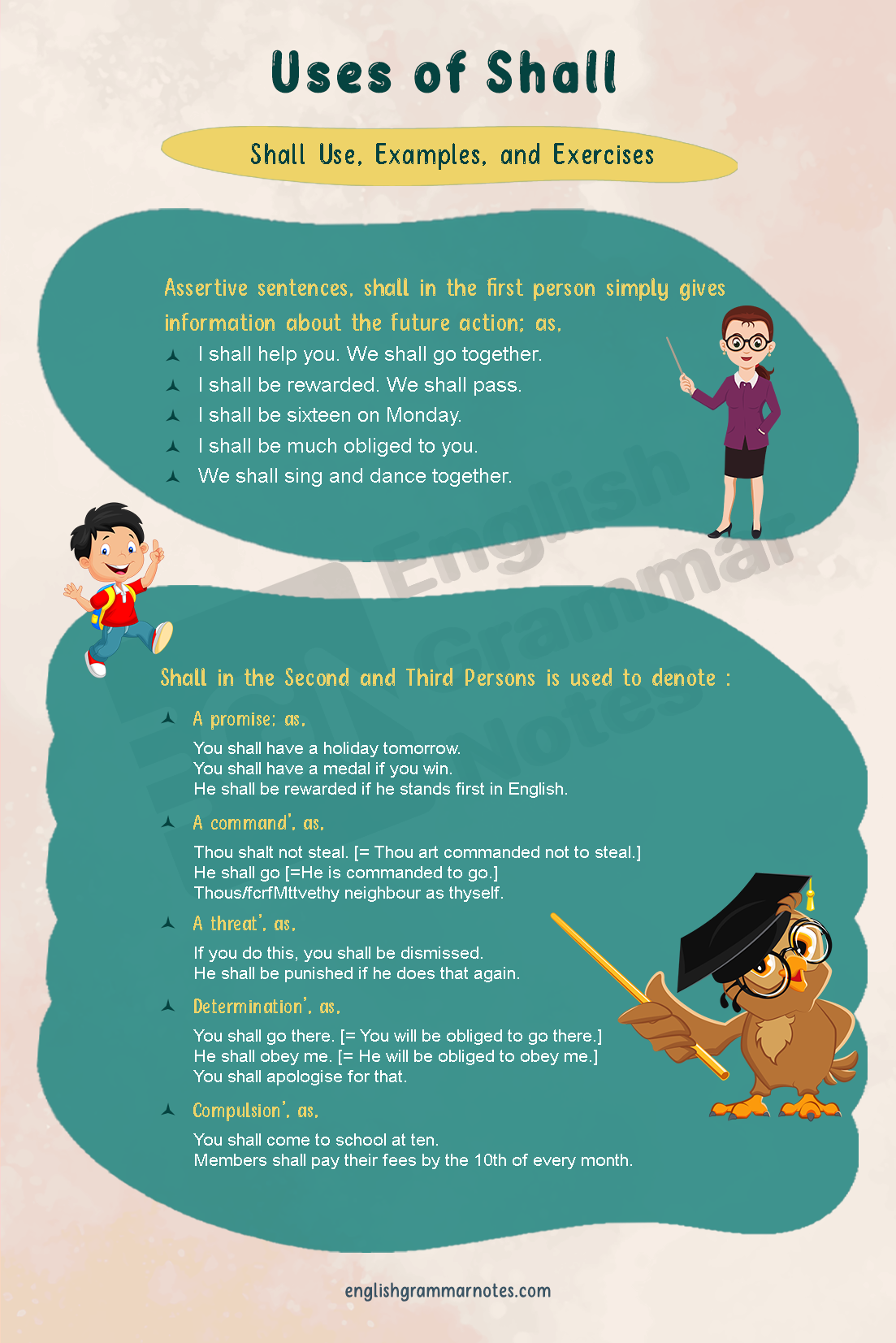Shall Use, Examples, and Exercises
Assertive sentences, shall in the first person simply gives information about the future action; as,
- I shall help you. We shall go together.
- I shall be rewarded. We shall pass.
- I shall be sixteen on Monday.
- I shall be much obliged to you.
- We shall sing and dance together.
Shall in the Second and Third Persons is used to denote :
- A promise; as,
You shall have a holiday tomorrow.
You shall have a medal if you win.
He shall be rewarded if he stands first in English. - A command’, as,
Thou shalt not steal. [= Thou art commanded not to steal.]
He shall go [=He is commanded to go.]
Thous/fcrfMttvethy neighbour as thyself.
- A threat’, as,
If you do this, you shall be dismissed.
He shall be punished if he does that again. - Determination’, as,
You shall go there. [= You will be obliged to go there.]
He shall obey me. [= He will be obliged to obey me.]
You shall apologise for that.
- Compulsion’, as,
You shall come to school at ten.
Members shall pay their fees by the 10th of every month.

In Interrogative Sentences —
- Shall indicates simple futurity, permission or desire of the person spoken to in the First Person; as,
Shall I be Wasting in Despair? (Simple Futurity)
Shall I Open the Window? [=Do You Wish me to Open the Window?]
Shall we go out? [=Do You permit us to go out?]
Shall I Thread the needle for you? [Do you want me to thread the needle for you?]
Shall we carry the box into the house for you? - Shall Indicates simple futurity in second person; as,
Shall you go there? (Simple Futurity) - Shall expresses the command or desire of the person spoken to in the
Third Person; as,
Shall he go? [=Do you wish or command him to go?]
Shall the porter to carry your box upstairs?]
Shall the messenger wait? [Do You want the messenger to wait?]